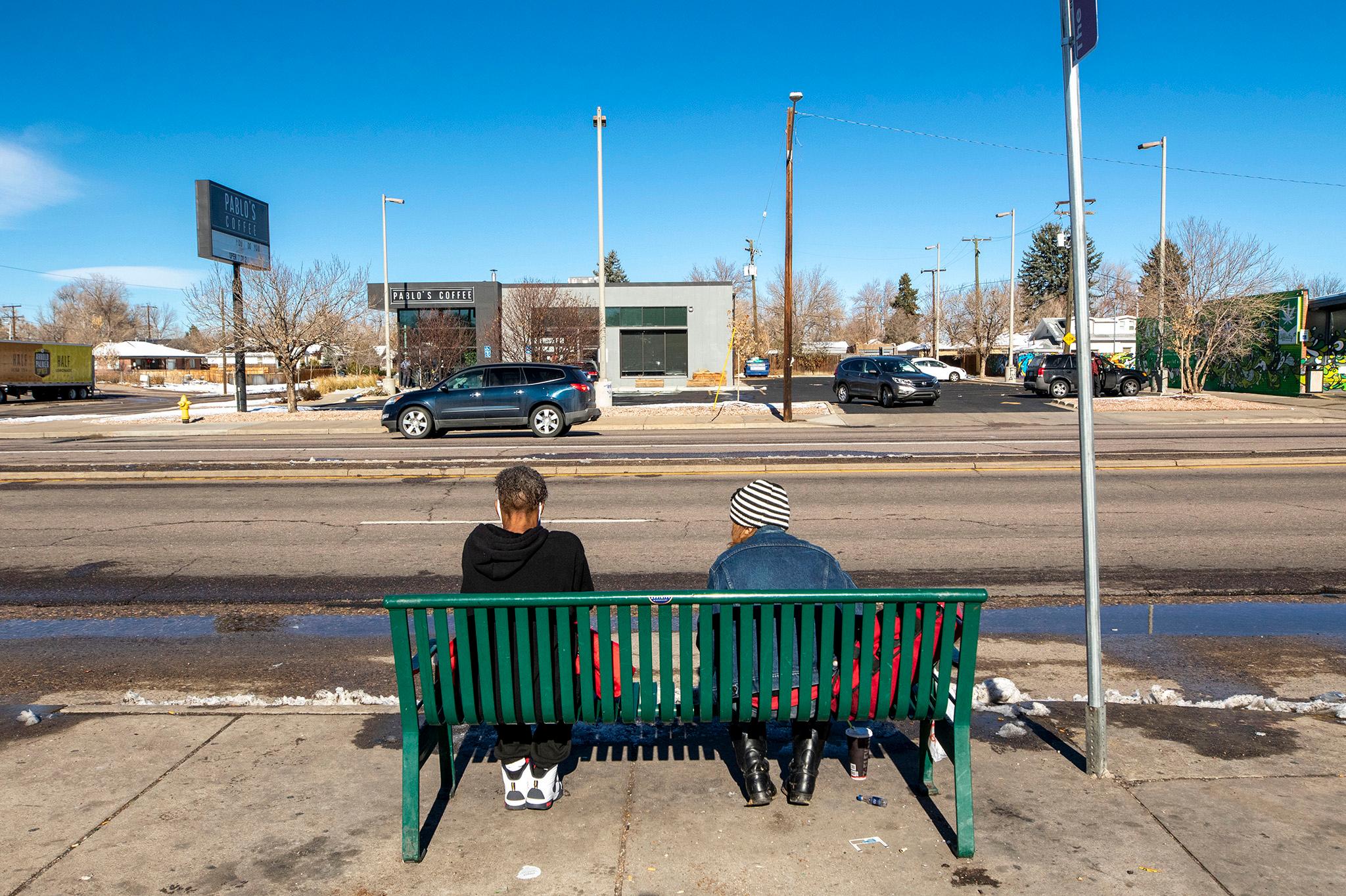Denver's government doesn't build homes. It is not in the business of outfitting privately owned apartment buildings with things like washers or dryers, either. Yet those are the things on which Jasmine Carroll would spend a million dollars if she had the money.
"Our apartments have a lot of issues," said Carroll, who was walking on East Colfax Avenue near the Aurora border with her two children, one in a stroller and one holding her hand, a day before Thanksgiving. "I talk to my friends and they're just like, housing is ridiculous for what we pay for it."
Timothy Callahan said that if he had a million dollars, he'd also spend it on housing -- not shelters -- for people who need a hand-up.
"Things like homeless shelters have been tried before," said Callahan, who spoke through an electrolarynx. "For some reason, people don't have an incentive to care ... and that's the part that needs to change."

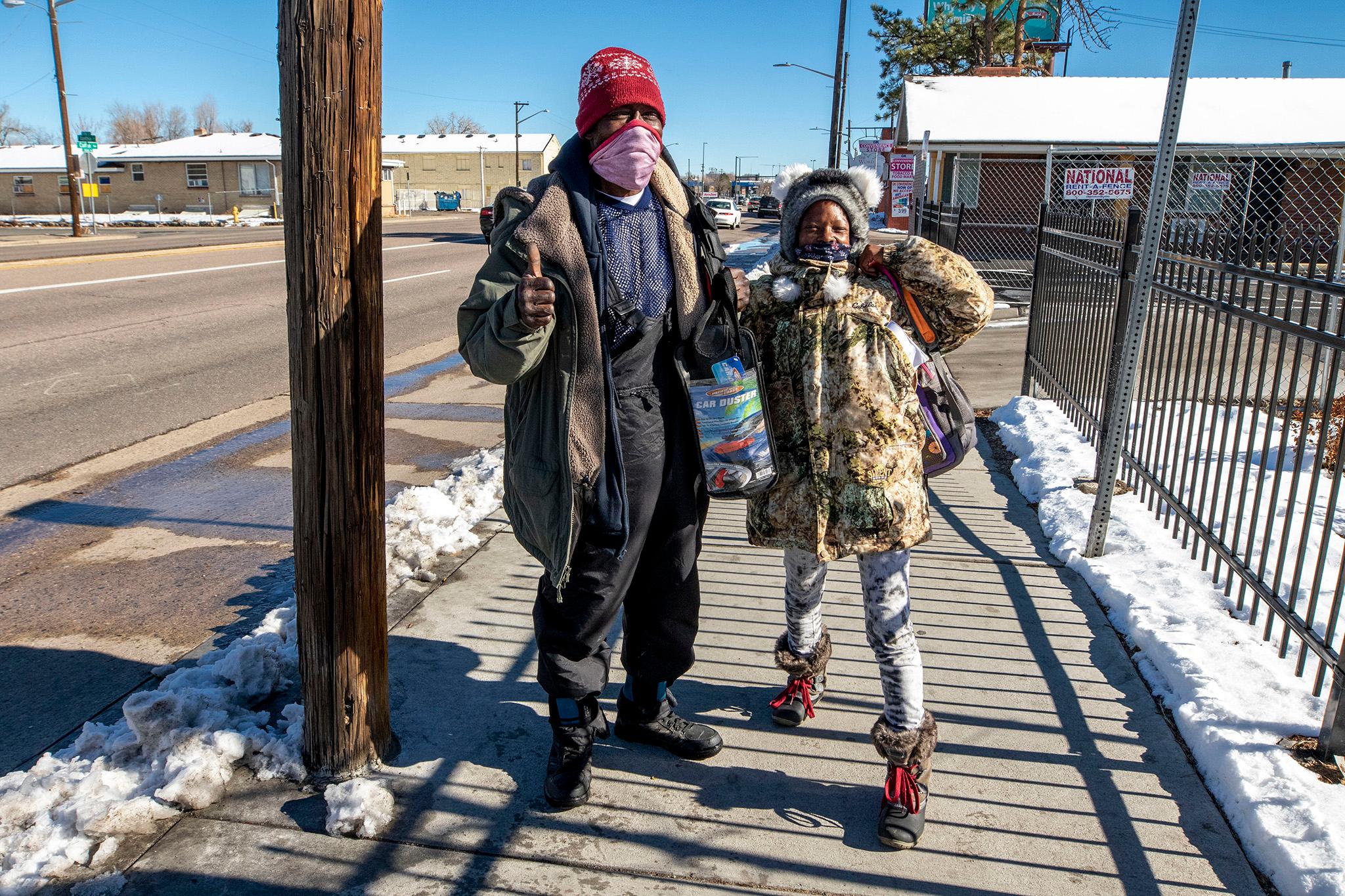
In fact, out of the dozen people Denverite spoke with on a random stroll down Colfax, housing and homelessness rose to the top of most everyone's wish list of things they'd throw money at. There was also the man, sporting a red bandana outside of a liquor store, who refused to share his name but said the city's far-east side needs a rec center with programs for "gang intervention, for kids who are stuck in that lifestyle." He added, "How are you gonna throw some kids in jail and expect that to work and expect them to have hope?"
Carroll, Callahan and the other locals Denverite spoke to, several of whom were experiencing homelessness, are exactly the type of people city finance officials say they want to reach with their foray into "participatory budgeting," the practice of letting locals decide how to spend tax dollars. East Colfax struggles more with poverty than whiter, wealthier neighborhoods and lacks public investment enjoyed elsewhere. The neighborhood ranks at the bottom of the city's equity scale.
"One of the biggest reasons we've heard that cities do these processes is to put more power into our historically marginalized communities," said Kiki Turner, a spokesperson for the Denver Department of Finance. "We all know that the city has frequent flyers to the city council, to community meetings, and that's great. But this is really about trying to reach the people who likely need improvements most and aren't able to show up or, you know, have their voice be heard at that meeting."
The Hancock administration has set aside $1.7 million for participatory budgeting, or "PB," as government types call it. After years of pushing from City Councilwomen Robin Kniech and Candi CdeBaca and other activists, Denverites will get to decide how to spend that cash during a public process next year.
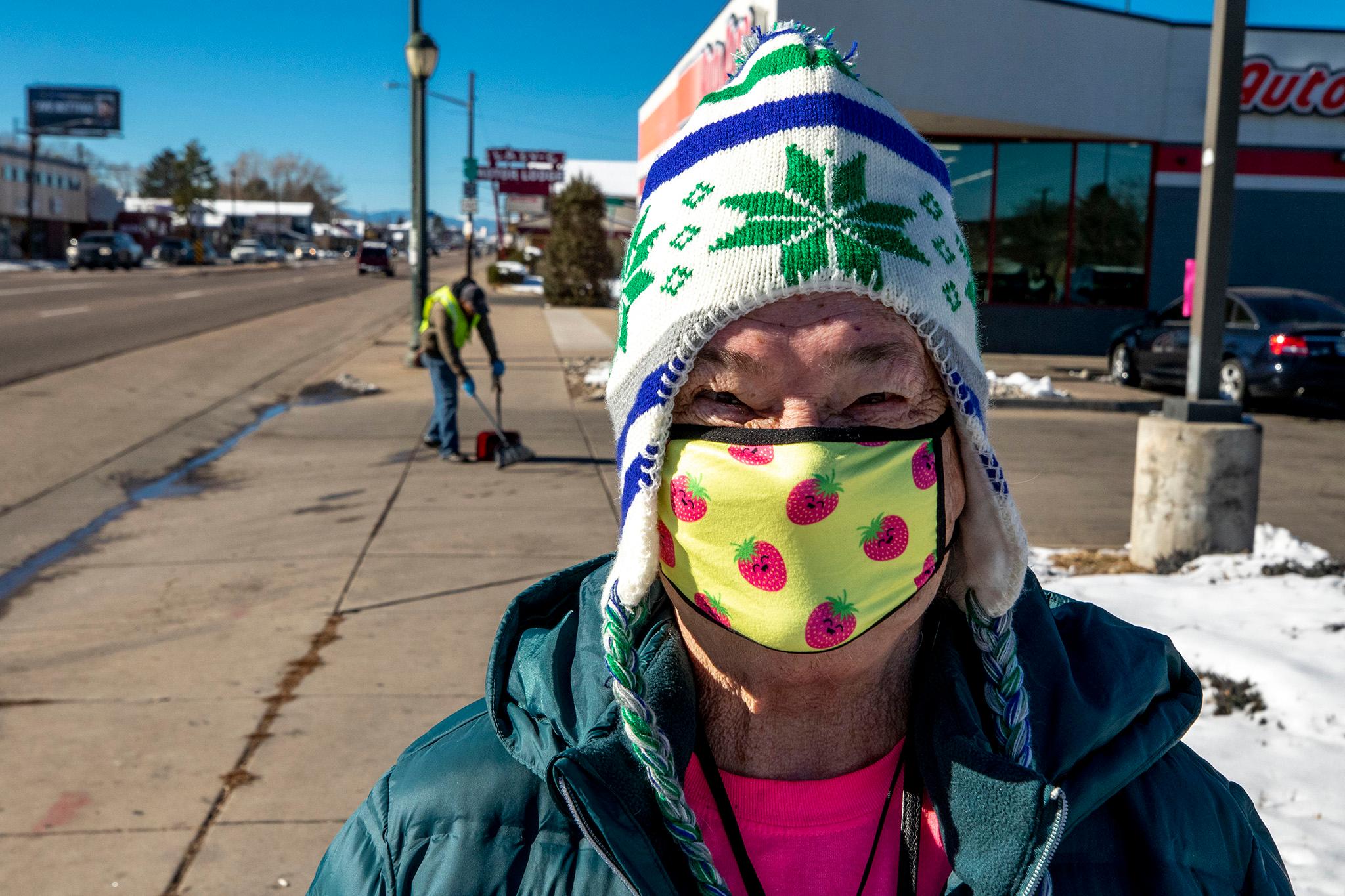
Here's how it works: The government will hire a consultant to help run the public process, which locals will shape. Denverites will come up with a rulebook to work out things like whether they want to spend the money on one big project or multiple smaller ones, for example. Or who will be allowed to vote -- should kids get a say? City staffers will be there for technical support.
"The whole idea of this is that it is really as community-led as it can be," Turner said. "The city is there to serve as a guide, certainly help where we can inform residents, educate residents about what cities are able to do, how the budgets work. But really we want residents at the forefront."
There are rules for how we can and cannot spend the money that might water things down.
None of the things pitched by Colfax promenaders are feasible with this round of democratic budgeting. Of the $1.7 million, $700,000 is earmarked for streets -- improving mobility around town. The other $1 million is reserved for projects in the 13 eastside neighborhoods with newly adopted plans for growth. Rec centers and apartment buildings are multimillion-dollar projects.
Another big restriction is that the money can only be spent on "capital" projects, which are essentially tangible things -- one-time buys like playgrounds or other structures -- as opposed to social programs or a cash stimulus.
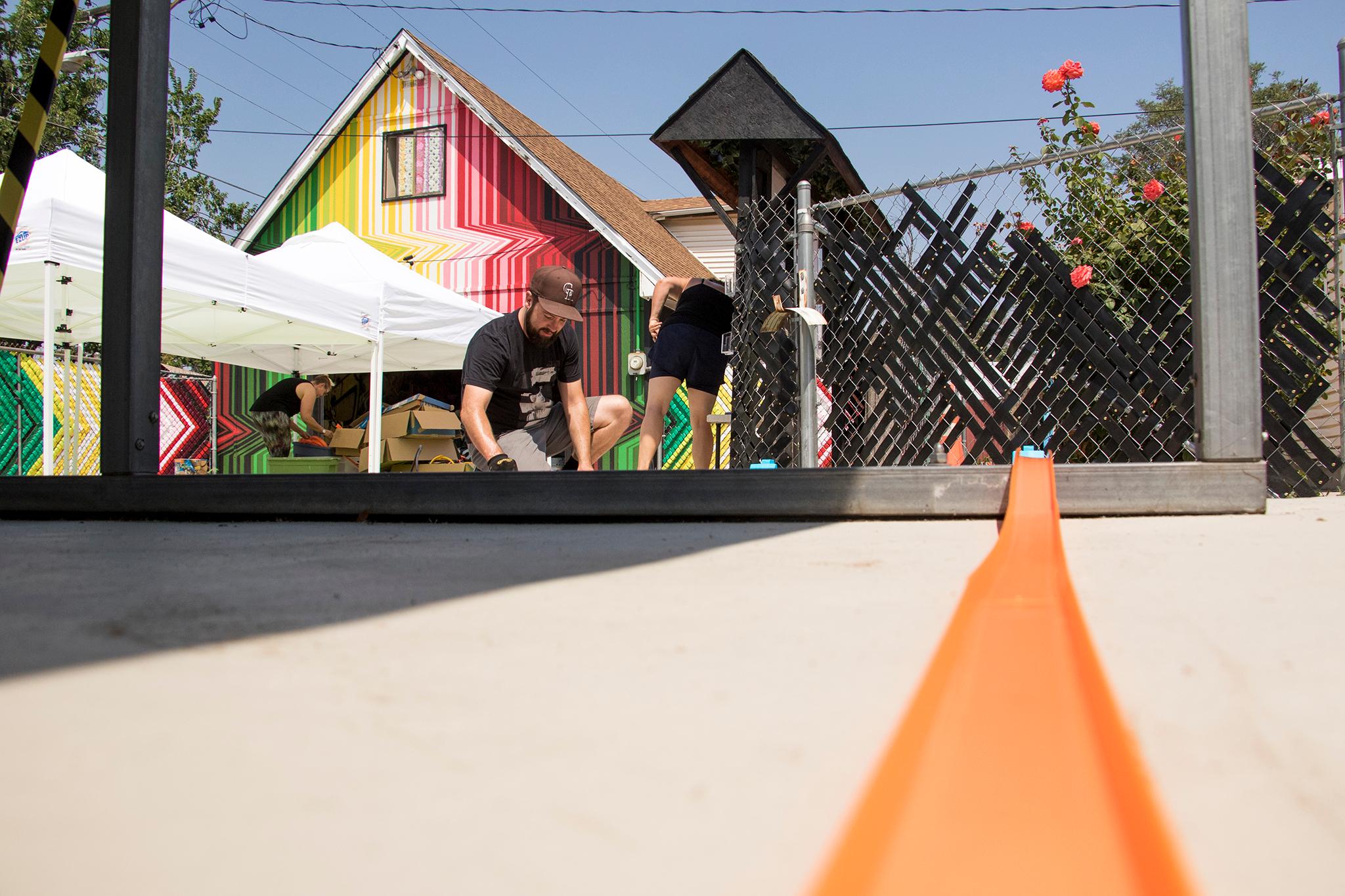
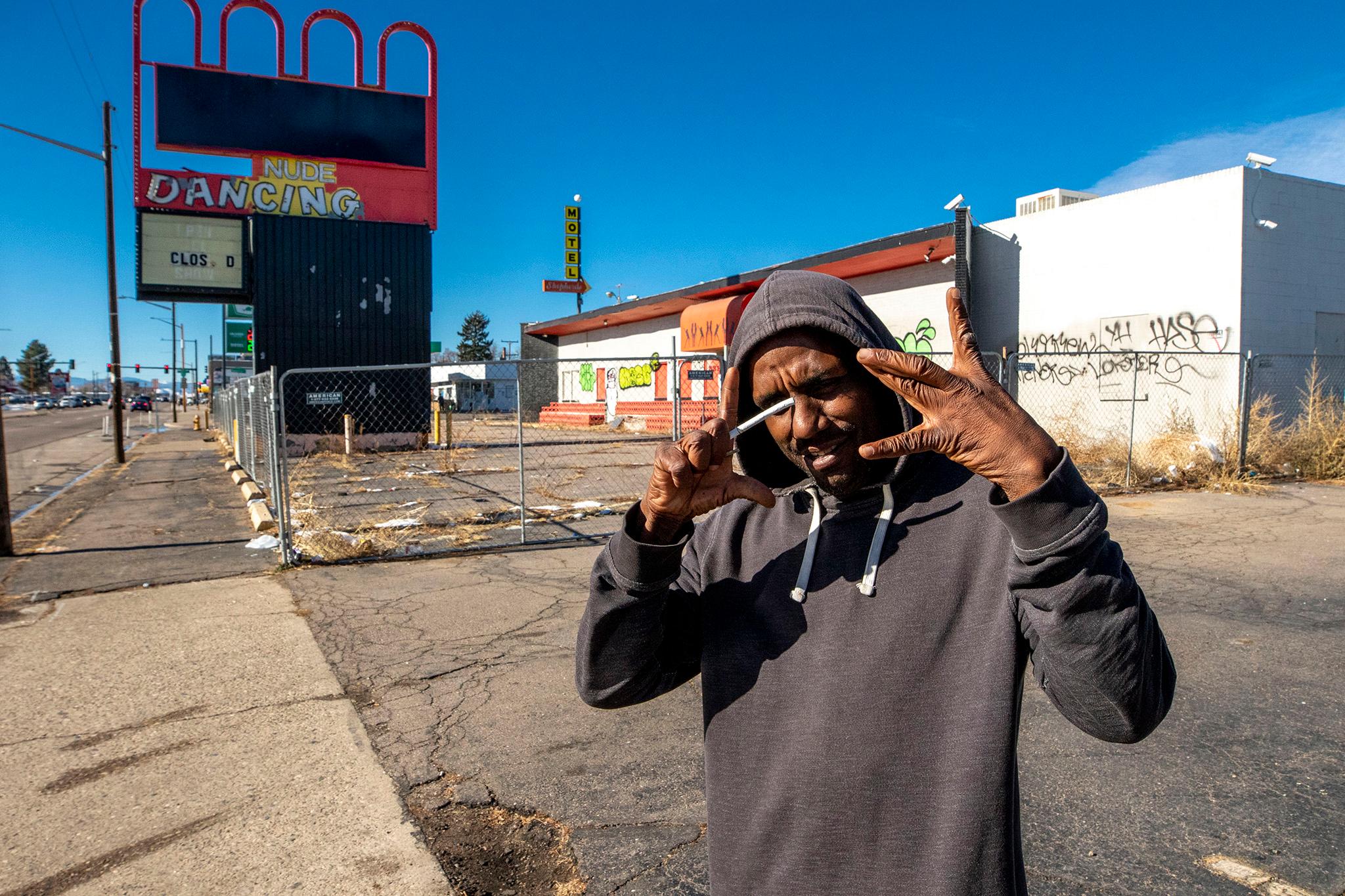
"If I had a million bucks, I would walk Colfax up and down and give it all back to the f***in community," said Dana Dwayne Williams, who added that he is "a billionaire in the heart."
Turner said projects that require an operations component are "gnarlier" to set up than one-off capital projects.
Evan Weissman, co-founder of Warm Cookies of the Revolution, a "civic health club" that has advocated for participatory budgeting in Denver for years, said the restrictions put a ceiling on what locals can dream up.
"I'm cheerleader number one that the process is happening. I'm critic number one that I don't want to see it set up in a way that doesn't allow for the greatest success," Weissman said.
It doesn't help that the $1.7 million represents a spec -- less than .1 percent -- of Denver's $2.1 billion budget next year, Weissman said. He and Vincent Russell, a doctoral candidate who studies participatory budgeting at the University of Colorado, both said they were disappointed in the sum.
"I think that it is going to limit the possibilities for participatory budgeting to make significant impacts," Russell said.
According to Russell's research, the average amount of money spent in North America via PB in 2018 was $9.85 per person. Denver's allocation would equate to $2.37 per person that year, he said. He added that the city would need to allocate around $7 million to be on par with its counterparts around the continent.
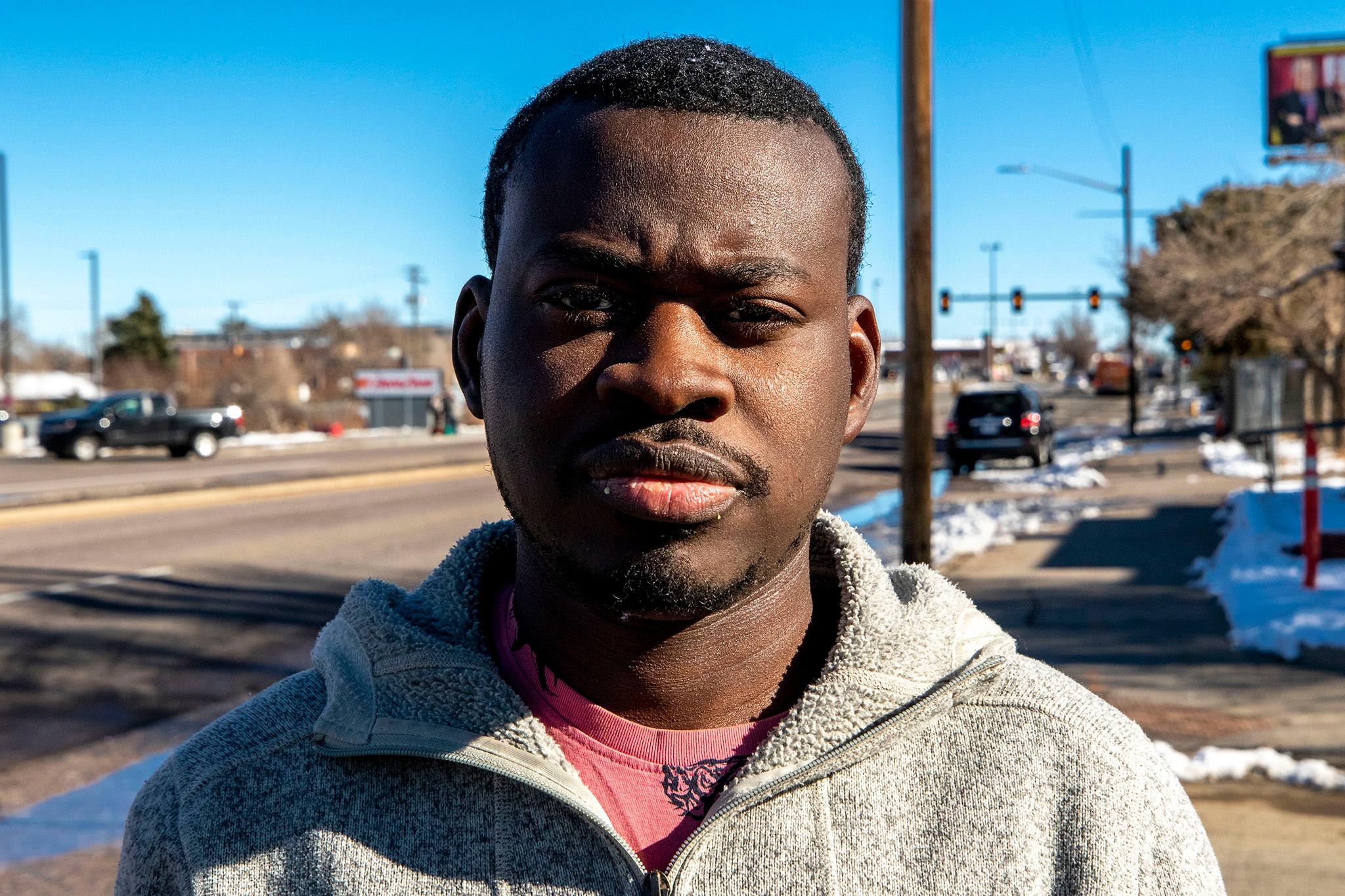
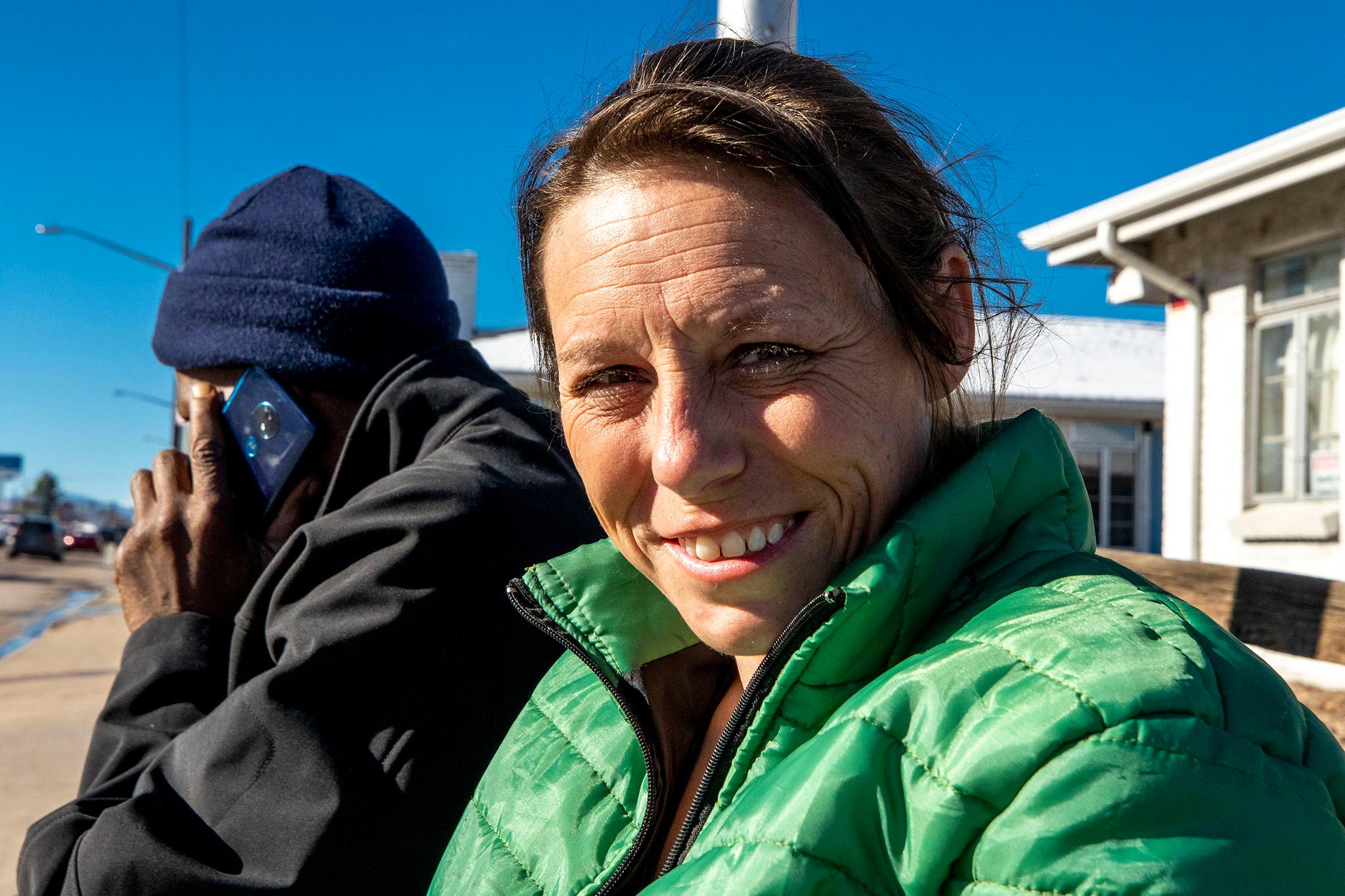
Still, Russell and Weissman realize the city is in the middle of a recession and are hopeful that the city's first year of PB will show that locals can handle more responsibility to dole out far more money on far more things.
Turner of the city's finance department said the government consultant will document what worked well and what does not in order to shape future PB processes. While the city aims to have a regular PB process, Turner could not say whether they would happen every year.
The other piece to PB is luring locals into civic engagement and a more civically fit populace at a time when trust in government is ailing. Just ask Spain, where PB gave rise to an entire political party.
PB started in Brazil in the 1980s and has since inspired better health and education outcomes, according to research out of Boise State University. In Brazil, when the people who had an acute understanding of the problems they faced got a direct say in how to spend money on those problems, infant mortality rates declined, according to a study published in The Journal of Public Deliberation.
Community groups consistently grow out of participatory budgeting, Russell said, because people who have been left out of government learn how to play. He said the process helps people take more control of local politics by forming community groups that influence government spending. Russell credits Spain's PB programs with sparking the formation of Podemos, a new and powerful national party that has transformed the country's politics.
"In some ways, participatory budgeting functions as a sort of school for democracy," Russell said. "As people participate in participatory budgeting, they learn more about city bureaucracies ... how to get things done in their neighborhood, who is in charge of putting a stop sign at an intersection. They develop the civic skills and capacities and habits to make a difference."

Weissman believes PB has the potential to even the playing field.
"Those who have had historically less access to the levers of control have more of a say," Weissman said. "So that's ultimately poorer people, folks of color, younger people. It tweaks the system. It reforms the system in a more democratic way."
Turner acknowledges the distrust people have in the local and national government. PB should help close a "circle of trust" and offer an entrée to the government, which some people see as a "black box," she said.
"I think we do our best pull back the curtain and bring people in, but until you can give someone a specific dollar amount and an actual ballot to direct those dollars, I think people aren't as believing or trusting or involved in the process."
That process will begin next year, with shovels in the ground in 2022, Turner said.

